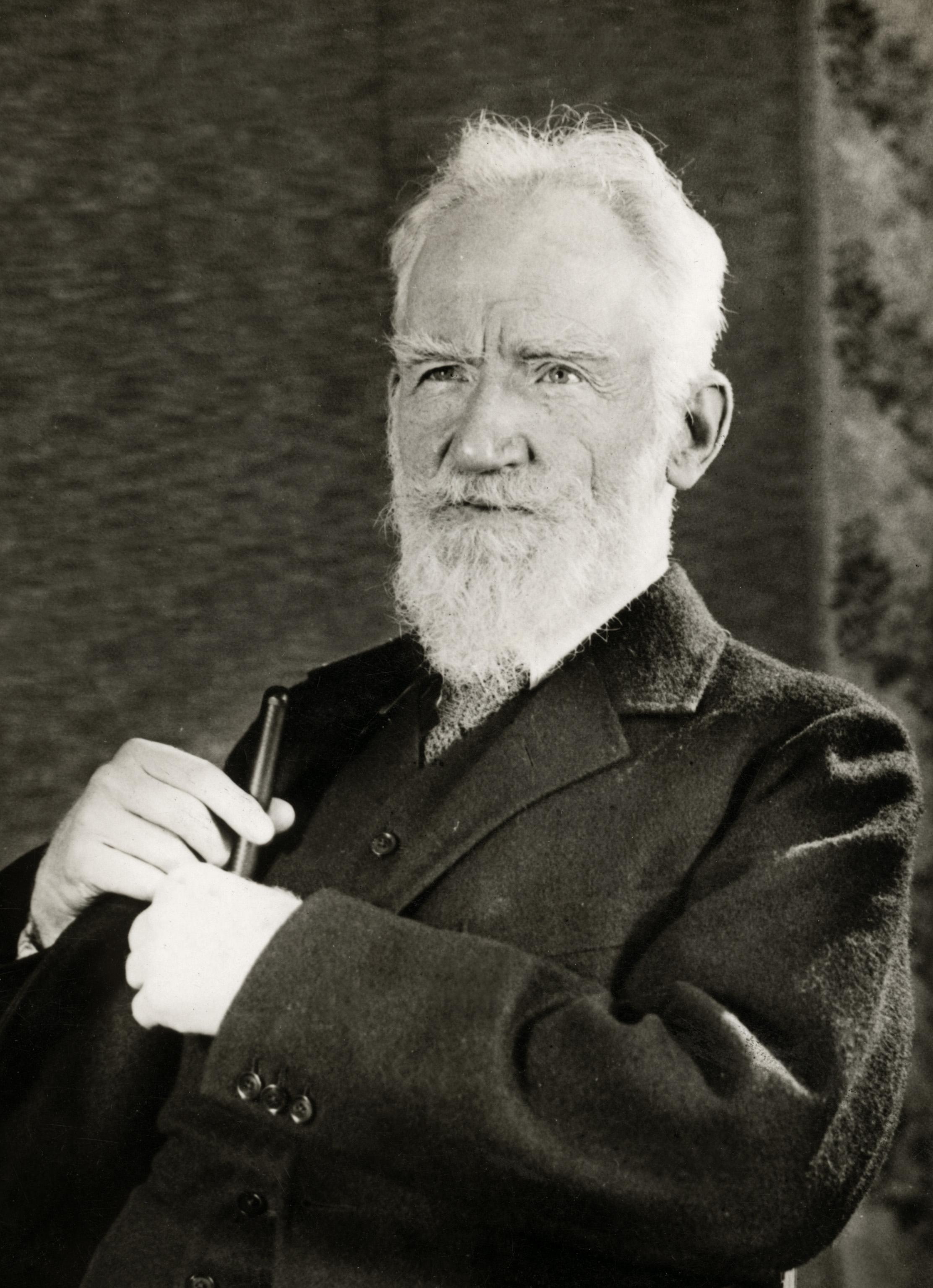George Bernard Shaw Berühmte Zitate
Zitate über Menschen von George Bernard Shaw
The Devil's Disciple, Act II (1901)
Original engl.: "The worst sin towards our fellow creatures is not to hate them, but to be indifferent to them: that's the essence of inhumanity."
„Je mehr ein Mensch sich schämt, desto anständiger ist er.“
Man and Superman (dt.: Mensch und Übermensch), 1903, 1. Akt
Original engl.: "The more things a man is ashamed of, the more respectable he is."
George Bernard Shaw Zitate und Sprüche
„Ich zitiere mich oft selber. Ich finde, es bringt Attraktivität in das Gespräch.“
The Wordsworth Dictionary of Quotations, Robertson, Connie, Wordsworth, Herfordshire 1996
Original engl.: "I often quote myself. It adds spice to my conversations."
Der Sozialismus und die Natur des Menschen, Suhrkamp, Frankfurt a. Main 1973. S. 140 ISBN 3-518-36621-1 Auswahl und Übersetzung von Ursula Michels-Wenz, zitiert in: Die Neue Gesellschaft, Heft 27, hrsg. für die Friedrich-Ebert-Stiftung, Bonn 1980. S. 757
Original engl.: "[...] Equality is the best touchstone for distinguishing your real Socialist from your virtuously indignant pitier of the poor." - The Road to Equality: Ten unpublished Lectures and Essays, 1884-1918, edited by Louis Crompton, Beacon Press, 1971. S. 194
„Wenn ich scherzen will, sage ich die Wahrheit. Das ist immer noch der größte Spaß auf Erden.“
John Bull's Other Island, Akt 2, 1907
Original engl.: "My way of joking is to tell the truth. It's the funniest joke in the World."


„England und Amerika sind zwei Länder, die durch die gemeinsame Sprache getrennt sind.“
Reader’s Digest, November 1942; für Shaw nicht belegbar, jedoch hatte Oscar Wilde schon vorher in "Das Gespenst von Canterville" einen ähnlichen Gedanken. Popular misquotes - 'the things they never said'. http://www.phrases.org.uk/quotes/misquotes/
Original engl.: "England and America are two countries divided by a common language." auch mit "United States" und "Great Britain"
Zugeschrieben

George Bernard Shaw: Zitate auf Englisch
“The only time my education was interrupted was when I was in school.”
Widely attributed to Shaw from the 1970s onward, but not known to exist in his published works. It is in keeping with some of his sardonic statements about the purposes and effectiveness of schools. First known attribution in print is in Neil Postman and Charles Weingartner's Teaching as a Subversive Activity (1971), "G. B. Shaw's line that the only time his education was interrupted was when he was in school captures the sense of this alienation."
Attributed
Preface http://books.google.com/books?id=aniaAAAAIAAJ&q=%22No+man+who+is+occupied+in+doing+a+very+difficult+thing+and+doing+it+very+well+ever+loses+his+self-respect%22&pg=PR22#v=onepage
1910s, The Doctor's Dilemma (1911)
Variante: No man who is occupied in doing a very difficult thing, and doing it very well, ever loses his self-respect.
#136
1900s, Maxims for Revolutionists (1903)
"The Living Pictures", The Saturday Review, LXXIX (April 6, 1895), 443, reprinted in Our Theatres in the Nineties (1932). Vol. 1. London: Constable & Co. 79-86
1890s
Preface to Ellen Terry and Bernard Shaw: A Correspondence (1931)
1940s and later
“I wouldn't have ate it, only I'm too lady-like to take it out of my mouth.”
Act II
1910s, Pygmalion (1912)
“You can't make a man a Christian unless you first make him believe he is a sinner.”
Lin Yutang, The Importance of Living (1937), p. 17
Misattributed
As quoted in the Evening Herald in Dublin, Ireland (February 3, 1948), reprinted in Economic Council Letter, Issue 278, Part 397 (1952), p. 1807 https://books.google.com/books?id=qtAeAQAAMAAJ&focus=searchwithinvolume&q=first+rate+Fabian
1940s and later
Shaw’s Lecture to the London’s Eugenics Education Society, The Daily Express, (March 4, 1910), quoted in Modernism and the Culture of Efficiency: Ideology and Fiction, Evelyn Cobley, University of Toronto Press (2009) p. 159
1910s
о религии
The Daily Chronicle on the 7 March 1917 https://www.rte.ie/centuryireland/index.php/articles/george-bernard-shaw-joyriding-on-the-front.
1910s, The Technique of War (1917)
“Walk! Not bloody likely. I am going in a taxi.”
Act III
1910s, Pygmalion (1912)
London Morning Post, December 3, 1925
1900s
The Serpent, in Pt. I, Act I
1920s, Back to Methuselah (1921)
Act II; sometimes paraphrased as: The customs of your tribe are not laws of nature.
1890s, Caesar and Cleopatra (1898)
“There are no secrets except the secrets that keep themselves.”
Confucius, in Pt. III : The Thing Happens
1920s, Back to Methuselah (1921)
